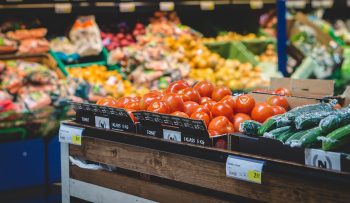Archive for 'Language'
Vocabulary For Food In German Part Two Posted by Larissa on Sep 17, 2015
To carry on from my last post, which you can find here, I’ve made another list of translations of food along with their singular and plural forms. I’ve chosen words that are unusual that you might not know yet to widen your German vocabulary. Let’s get started: Gemuse und Obst: Vegetables and Fruit: der (die)…
Untranslatable German Words: Nagelmond Posted by Constanze on Sep 10, 2015
Guten Tag! Welcome to another edition of German untranslatable words, dedicated to teaching you quirky German words, their meanings, and how to use them! Today the word is der Nagelmond. What does Nagelmond literally translate to? The German compound noun Nagelmond is made up of the words der Nagel (nail) + der Mond (moon). It…
Untranslatable German Words: Rabeneltern Posted by Constanze on Sep 3, 2015
Guten Tag! Welcome to another edition of German untranslatable words, dedicated to teaching you quirky German words, their meanings, and how to use them! Today the word is die Rabeneltern. What does Rabeneltern literally translate to? The German compound noun Rabeneltern is made up of the words der Rabe (raven) + die Eltern (parents)…
Untranslatable German Words: Arschgeweih Posted by Constanze on Aug 29, 2015
Guten Tag! Welcome to another edition of German untranslatable words, dedicated to teaching you quirky German words, their meanings, and how to use them! Today the word is das Arschgeweih. What does Arschgeweih literally translate to? This German compound noun is made up of the words der Arsch (butt/ass/arse) + das Geweih (antlers). Its literal…
Vocabulary for food in German Posted by Larissa on Aug 24, 2015
I’ve composed a list to help you understand what you’re buying in der Supermarkt (the supermarket). I’ve listed basic everyday food below and I’ve also added the plural to each one. The general rule when saying an object is plural in the nominative and accusative cases is that the gender changes to “die”: for example der Apfel…
Reading Pennsylvania German Posted by Constanze on Aug 19, 2015
With any language, being aware of its different dialects and variations is just as important (and interesting!) as learning the standard language. Recently I did a post on Pennsilfaanisch Deitsch (Pennsylvania German) and how it has developed from standard German. In that post, I focused on key words, and gave you two videos of people…
Rumspringa With Pennsylvania German Posted by Constanze on Aug 5, 2015
It was some years ago when watching a documentary on Amish teenagers that I heard the word Rumspringa for the first time. But that sounds like a Bavarian word!, I thought. At this time I knew nothing about the Amish, let alone their German roots. Everyone knows that German is spoken in Germany and Austria…








